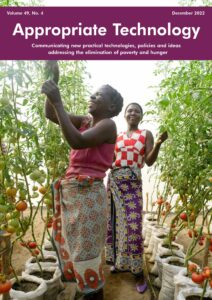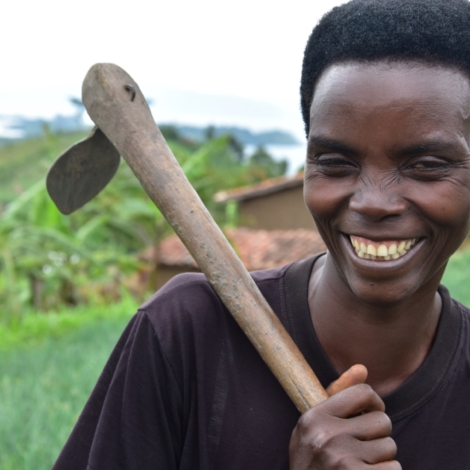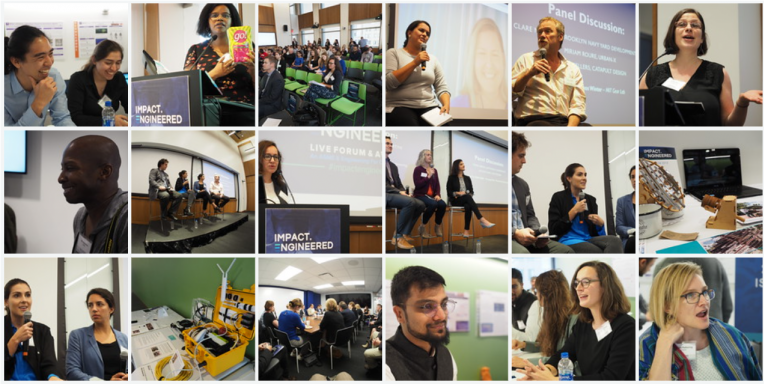
Editor’s note: This article is a reprint of a page that appears in print in Appropriate Technology, Vol 49, No. 4. It is published here with permission as a part of our collaboration with the magazine. For more, please see the magazine’s site: www.appropriate-technology.com.
At the end of a year which has been so traumatic for so many, it’s good to realise that there is still progress being made by development and relief agencies and positives to be acknowledged in many parts of the world.
Global conflicts, not only in Ukraine, have inflicted immense suffering on many people this year, either as a direct impact of war or through severe economic hardships which might otherwise have been avoided. While there is no escaping such realities, it is also important to pay tribute to those who have sought to improve the lives of others in 2022, a realisation which gradually dawned on me as I gathered material for this latest issue of Appropriate Technology.
Our Last Word article (pages 60-63), for example, is an inspiring account of the promotion of horticulture as a sustainable activity for smallholder farmers in West Bengal, India. The writer, Dr Miku Foning, describes the local area in which he lives, recounting why he thinks of it as the ‘natural greenhouse of the world’.
His report is all about what more could be achieved with the right support and equipment, listing simple requirements such as, good quality planting materials, new varieties, plastic for greenhouses, training programmes, and so on.
Practical Action’s article (pages 26-27) focuses on a £1.2m project called ‘Empowering women farmers with Digital finance’. Located in a remote area of Nepal, the project work is backed by funding from Jersey Overseas Aid (JOA). In addition to reading the article itself, please take a few extra minutes to visit the JOA website. It will be worth it.
Further positives are contained in our regular spread from Prolinnova (Pages 18-21), part of which deals with what happens when 20 smallholder farmers in the northern part of South Africa decide to explore the idea of making coffee from the roots of the Mohlopi tree.
COP27
We also devote a few pages to what went on at COP27, the UN climate change conference which took place in Sharm El Sheikh, Egypt, from November 6-20. It would be difficult to reach a united view on what was achieved during COP27 and what wasn’t. Summary opinions on such events often reflect an entrenched starting position. Our aim was to report what others saw and heard during this first COP to be held in Africa.
Only time will tell whether the positives which were signed off in Sharm El Sheikh will outweigh the negatives (See pages 5, 8 & 9).
Earthshot Prize
Finally, a mention of the five amazing winners of the 2022 Earthshot Prize, whose names were unveiled too late to be included elsewhere in this issue but which seemed too good to be ignored.
“The Earth is at a tipping point and we face a stark choice,” said Prince William, who presented each with £1 million, along with the comment that ‘people can achieve great things’.
“The next ten years,” he added, “present us with one of our greatest tests – a decade of action to repair the Earth.”
Congratulations to:
Clean Our Air: Mukuru Clean Stoves, Kenya – a female-founded business which produces stoves that are fired by processed biomass made from charcoal, wood and sugarcane, instead of solid fuels.
Protect and Restore Nature: In Kheyti, India, Kaushik Kappagantulu’s Greenhouse-ina-Box helps smallholder farmers protect their crops from extreme weather and pests.
Build a Waste-free World: Notpla, UK, with its waste-free solution, based on work by Pierre Paslier and Rodrigo Garcia Gonzalez who have created natural, bio-degradable plastic out of seaweed.
Revive Our Oceans: The Indigenous Women of the Great Barrier Reef in Australia, who have trained over 60 women in both traditional and digital ocean conservation methods.
Fix Our Climate: In Oman, Talal Hasan’s project 44.01 promises to turn carbon dioxide into peridotite, a rock that is found in abundance globally, offering a low-cost and safe alternative to traditional methods of storing carbon.
A positive conclusion to 2022 certainly, and hopefully a strong starting point for the year ahead. Best wishes to you all for 2023.
Featured image (above): A favourite ‘positive’ from the archives. First published in Appropriate Technology in March this year, this image shows an upbeat Rwandan farmer who is benefitting from a Strengthening African Rural Smallholders (STARS) initiative, backed by Cordaid, a Netherlands-headquartered relief and development organisation. .
Magazine cover (above): Working as a team in Chintheche, a town situated along the arid lake shores of northern Malawi, where farming is challenging. Most men in the area fish for a living, which often leaves women in rural households with the responsibility of tending the land. Photo: Practical Action.

